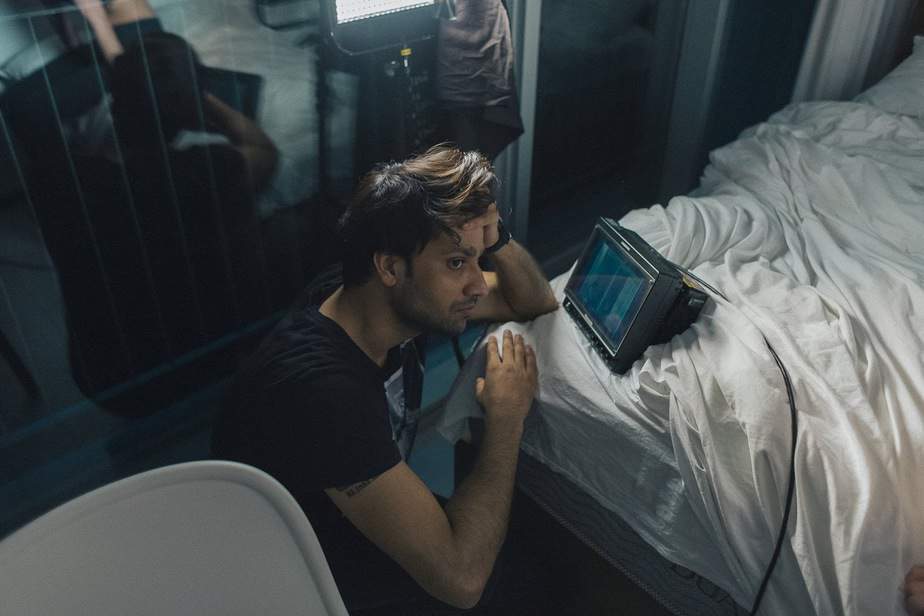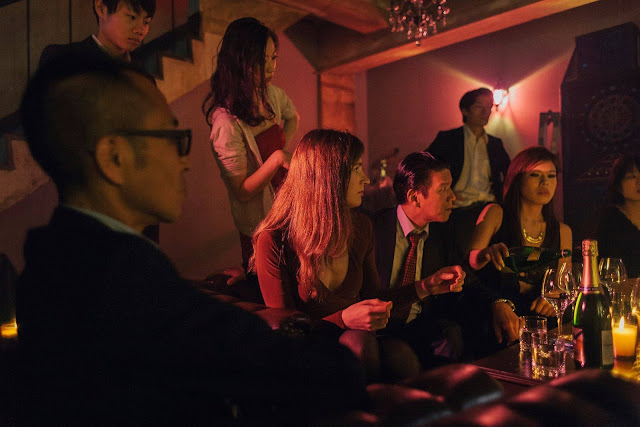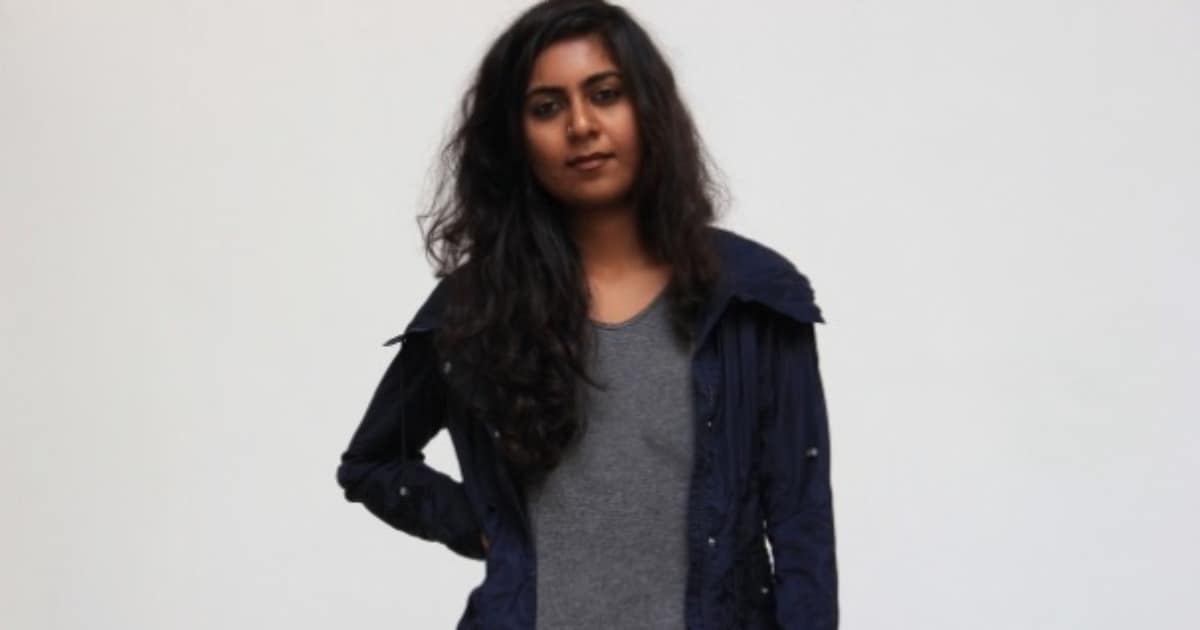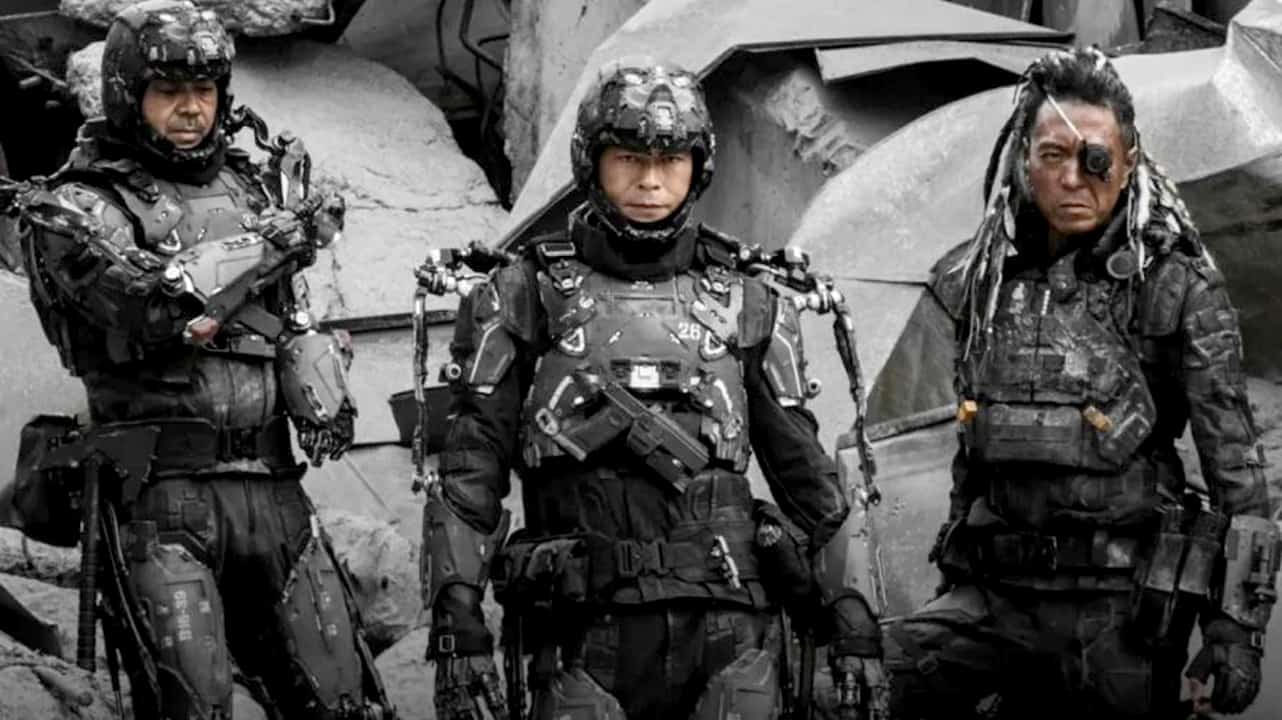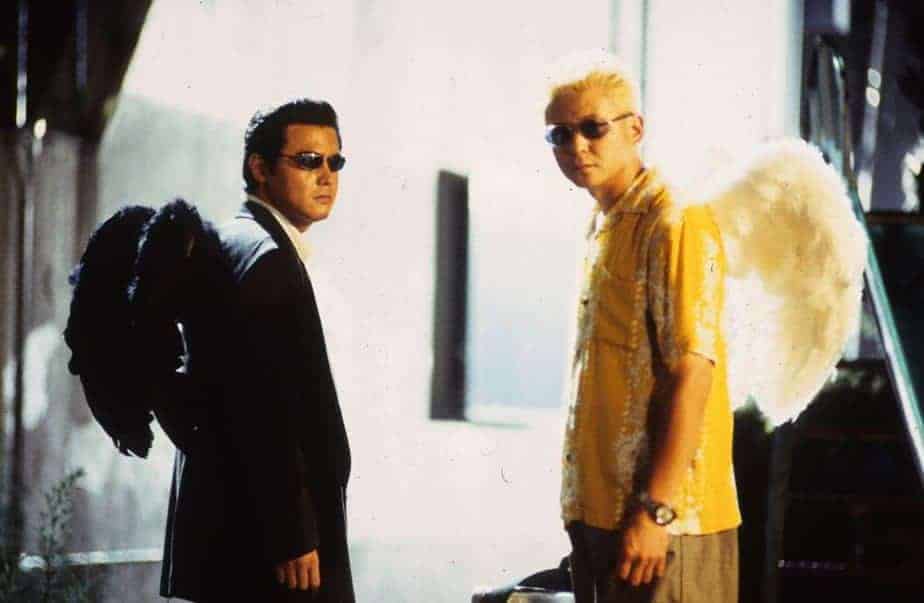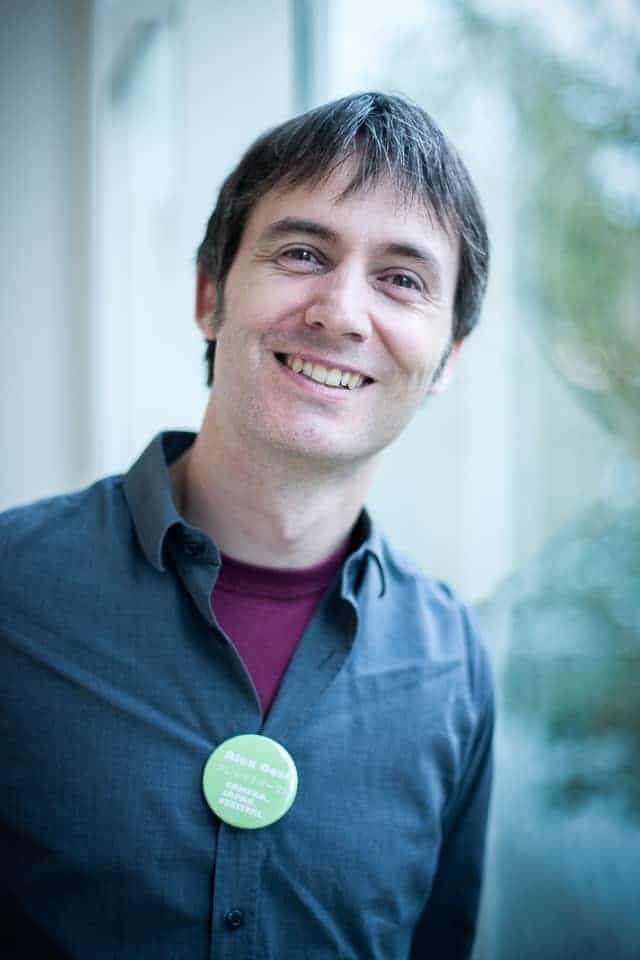The interview took place March 2018
Anshul Chauhan was born in North India and finished schooling in military academy. Instead of joining the Army he left home and moved to South India to learn Animation. He got his first job internship in Technicolor as animator for TV series – Farm kids produced by Nickelodeon. He has been working for 10 years as 3D animator and director for TV series and TV films. His latest films as an animator is Kingsglaive from Final Fantasy and Gantz:O. His first two live-action films were shorts, Soap” and “Kawaguchi 4256”, both of which won multiple awards. “Bad Poetry Tokyo“, which had its World Premiere in Brussels Independent Film Festival and the Asian Premiere in Osaka Asian Film Festival, is his first feature.
In an intensely thorough interview, we speak with him in detail about his life and career, the film, the cast, cinema and his way of shooting movies, violence and abuse, his future plans, and many other topics.
I have to start with your Facebook post after “Bad Poetry Tokyo” did not win at OAFF. What were your feelings, and why were you so frustrated (if that is correct word)?
I think it was just a matter of expecting too much at the time. Looking back at it, I think it was a great honour just to be there with my team among so many other great directors and crew, especially since I never expected to be selected in the first place. And of course, Shuna winning the Best Actress award was the highlight for all of us. I guess it's you could say I got too caught up in the moment and ended up more sad and disappointed than frustrated. In retrospect, it was foolish to take the competition so seriously. I want to apologise for that Facebook post. It was just a whirlwind of energy that got me too emotional about the film and I lost sight of what was really important.
In the same post, you mention you “wanted to be on stage with the team and talk to public about why I made this film and what was the motive behind”. Can you please do so now? Also, could you elaborate on the title?
I think the moment is gone now. My motive for making this film is very personal to me. Perhaps I could have spoken about it if my team was standing there on stage with me, and maybe someday there will be another opportunity to open up. There were, however, other things I wanted to say on stage – I wanted to look at Shuna, Orson and Takashi and tell them, “I made this film for you three”. The whole film was created for them, honestly. This may sound cruel in a way, but I wanted them to change their personality after finishing the film. They are really nice guys with good families and lives, and I just wanted them to get serious about cinema and give them a new experience.
Another thing I wanted to talk about is what I see as the misuse of the words “Indie Cinema”. People seem to have forgotten what actual indie cinema is. These days, you see all kinds of big budget films with studios calling themselves “indie”. I believe that real indie is the real struggle; where you have no support at all besides that little sum of money that you've put aside. No matter how much your film gets appreciated or how many awards it wins, the public will never know what really went on behind the scenes. I think some part of me wanted to briefly explain the whole story of how this film came into existence and talk about all the struggles of being an outsider and making a film in Japan.
As for the title, it came from a very stupid talk between me and my script editor and constant collaborator friend Rand Colter. I wanted to use a few poems in my film as background voice over. So I told Rand about it and he read one of the poems I wrote and said he thought it was a pretty bad poem. I was like, “wait a minute…” and this title just clicked in my head. I dropped the poems but then re-wrote several scenes because everything now made sense somehow, and I ended up changing 50% of the script and the whole film just appeared in front of my eyes. Since I didn't use them in my film but the whole film was influenced by all those poems, I will give a short excerpt of a really long poem which I wrote and wanted to use. Maybe you could just call them rhymes rather than an actual poems, though. It might make sense for some people if they watch the film, but for me now its funny to read them.
Is that me or is that you,
Are we three or are we two,
This is the riddle, where is the clue,
Can you reflect the perfect me,
The perfect one which i can't see,
Or just tell me if I'll be free,
Mirror,
Why are you sad what is your fear,
You are not broken it is just my tear.
To explain this, Jun is talking to a mirror and asking it to reflect her perfect side and talking about freedom. The mirror is the only friend she has. Of course, the mirror can't reply and can only reflect the truth, and in the end her ego takes over and she forces the mirror to show it; otherwise she will break it .So it ends like
You are just a glass, a painted one,
I am just a stone, a fainted one,
Just one hit will take you down,
And I'll stay with the golden crown.
For me the film has a very different meaning but it is really good to know what others think and how they interpret the film.This is all cinema is about and I love it.
How come a man who was born in north India and and finished schooling in military academy ends up shooting Japanese films?
This is a question that comes up a lot, so I will try to give a concise but thorough explanation. Yes, I studied at a Military Academy in India, but I chose not to join the army after the graduation, instead choosing to get my bachelor's degree in geography before moving to south India in June 2006 to study animation. I managed to get my internship after 6 months and joined Paprikaas animation studios in Bangalore (now technicolor India) and I've been animator ever since. In 2011, I got a job at Polygon pictures to be a part of the “Tron Uprising” television series team so I moved to Tokyo in August of 2011. Since then, I have been working in Tokyo as 3D Character Animator. I got interested in live action films in 2012, though honestly, I didn't really know anything about films at the time or how to shoot them, as I've never been to film school. So I bought a camera and start taking pictures and shooting videos and editing them with pirated software.
Then one day I saw “All about Lily Chou Chou” by Iwai Shunji and I felt something strong in me. I quit my job a week later, wrote a rough script and moved back to India in June 2013. I shot the whole film with a Canon m2 with around 15 actors which I casted from the streets. It was supposed to be my first feature film and I thought it actually came out excellent; very raw and realistic. I was shooting a film about moonshine and marijuana smuggling in west India where alcohol consumption has been banned by the government. I was doing a lot of interviews with villagers about the subject, so when local government officials and police caught wind of the project, they confronted me during a village shoot and gave me a warning, saying they didn't like me asking so many questions. And hen it happened a second time. And finally they came to my apartment and destroyed my disks and camera. It was big shock for me, and unable to recover my broken disks I returned to Tokyo.
I quietly returned to animation for the next two years, but I was really depressed as I had put all my savings in that film shoot. In June 2016, I felt like it is high time: if I don't start making films now, it will soon be too late. So I ended up making my first proper short film, which is called “Soap”. It was my first time working with a cinematographer and sound recordist so I'd say it was a good learning experience. But I had to work fast as I always feel like I'm running late.
From June to December of 2016, I shot three short films and wrote the full feature film while working full time at an animation studio. Then on January 31st of the following year, I quit my job to make “Bad Poetry Tokyo”
So to put it simply, my reason for making films in Japan is that I live here. Tokyo really inspires me a lot; I am really at peace here.
You have also worked as an animator. Can you tell us about this experience and particularly your work in “Kingsglaive?”
I still do. After coming back from OAFF, the first thing I did was finish my animation tasks. As I mentioned above, I quit my job to make “Bad Poetry Tokyo”. But I returned to animation again in January 2018, since I needed to start making money again. I took a whole year off just to make a film, write and relax. Last year was my film school, I learned a lot.
In 2014 I was dispatched to Square Enix from my animation studio and from there I joined a very small team to work on Kingsglaive Final Fantasy. It was a really nice project; the experience was really good as I was working directly with the film director. I wanted to stay until the end of the film but unfortunately a few months in I had to go back to my studio to work on “Gantz:0”.
I worked in camera animation and layout and character animation in KingsGlaive. It was the first time for me to work on motion capture animation, as I mostly I do key animation, in which we have to create every single frame by hand – all the motions of characters, their emotions and actions. I've been in animation for 12 years and I really love it. But of course, to make an animated film is really costly so I make live action films. The two are like completely different worlds and I enjoy both.
One of the focal points in “Bad Poetry Tokyo” is the world of hostesses. What is your opinion on the subject and what kind of research did you do for this topic?
When you watch the movie, you can see that I haven't actually shown much of the hostess world in the film. There are a few scenes of people drinking and talking, and one scene in a car, but that's it. The film mostly skirts around it without going too deep into the reality of it, because I actually didn't know anything about the hostess scene and what it actually entails, having not done any research on this subject. I planned to go and check out some clubs and watch some films about it, but I was afraid I may end up making my film scene look like other films which already deal with the topic of hostess clubs and such. For me, the hostess part in the film is just a sublayer; the film is not about hostesses and their world.
I just knew I have this weird-looking shady basement and we need to make it into a club. If you look carefully, you can see that most of the shots are tight or mid-shots in the club because we could only light up one side of the basement and we didn't have enough people to make it look like a proper club. I highly doubt that Japanese hostess clubs look like this in real life. But while shooting scenes on the street with Shuna in her club dress, some people did think she was a hostess. In one of the scenes, when she is walking back to her home, you can see some drunk foreigners behind her whistling and shouting, prompting Shuna to look back.
The second one is abuse, particularly towards women. Can you elaborate on that? Also, what are your feelings about women's role in the contemporary Japanese society?
Many people might not like my answer if I say that while making the film, I was not thinking about abuse specifically towards women, but to anyone. In fact, the very first draft of the film was written for a male host going back to his hometown and trying to reconnect. So I never thought I am making a film about the abuse of women specifically. It is only after I met Shuna that I changed everything.
I can just as easily imagine this film for a male lead going through same abuse and problems with just a little adjustment in the film's plot and scenes. I think the film itself chose Shuna and Jun was born. But yes, I had a few stories from my friends and have seen some stories from newspapers and such about the abuse on women, so I kept them in my head as an inspiration. But I never thought I am making a film as part of a feminist agenda or anything like that. In one of the private screenings, one girl came to me and thanked me making this film, talking about how it will strengthen feminists and things like that, and I was just thinking “what are you talking about ?”. That was never my specific intention – though I did kept suppressed feelings of women in my head while making the film.
Regarding Japanese society and the role of women: I don't think there's much for me to explain. It's like I may have subconsciously noticed many things which end up hidden in some layers of my films, but I can't explain it to someone or properly talk about it – because I might be wrong. I think the film itself has the answers for all the questions above.
The violence that eventually ensues in the film seems inevitable but does not provide any kind of solace. Is that your opinion about violence? And how do you feel about its depiction on cinema?
Yes, we have some violence in the film, some of which is “mental violence”, which seems far less graphic. I see my story as an unfinished story, because I believe that, just like in real life, no one knows what is going to happen next. There is no certainty for anything: life is full of confusion and unplanned decisions. I am no exception, of course. Thus I decided to give an open end over a happy one because I felt the characters are all striving for something they can never have. Jun is already too deep into another world to restart a normal life, and the kiss she gives Yuki holds all the answers for him to understand: That Jun knows how much he loves her and she also knows inside that Yuki has done something very bad for her. I believe that they both know what the other did; but for Jun, love was not the answer. She was in search of something more.
Of course these kinds of incidents don't usually happen in real life. But as human beings, we all feel at some point in our lives the desire to do something like this, whether it be for someone else's sake or pure revenge; so I channelled these desires into a scene. I believe love to be very dark territory, where people often become confused, jealous, doubtful and vindictive. I think people tend to mistake love for romance, which I believe is so wrong. All of the most significant events in history somehow came out of a bad love story. BPT is just one such story.
If you were to continue the story, I imagine it would involve the police showing up the next day or later and opening an investigation. But I saw no reason to include that as it would a distract from the ongoing main story. As such, I believe this gives the film more life, as people can make their own stories about what would have happened next. It's surreal to have people think about additional scenes in the film that even I never considered. If I give a perfect ending, the film won't make any sense. I see the film as a mirror to many people; I want people to feel it inside but not to be able to explain what exactly they are feeling, and that feeling is unsettling.
About the depiction of violence in cinema, I actually love violent films. Even so, my interest in extreme gore has greatly diminished. If violence is done right, I just love it. As in, I really enjoy it when a story makes you feel the violence which is more “mental”. That way, I can use my imagination and make the scene more brutal in my head than if I was just seeing it happening on the screen. I used to like Tarantino's work a lot, but in the last few years I think it's gotten really stupid, with over-the-top and pointless violence along with extreme music and the like. I personally love violence in a lot of Korean films I've seen. For example, the violence portrayed in Kim Ki Duk's films is just perfect for me. It's very human and you can just feel it in your guts.
“Yellow Sea” is one of my favourites too. I tend to like the violence in Anurag Kashyap films too, despite it taking perhaps too much inspiration from Tarantino and other filmmakers.
Shuna Iijima is astonishing in the protagonist role. Can you tell us about how you guided for her role? How did she feel about all those very difficult scenes that include sex and violence? How did she feel about having her image shuttered (I mean her appearance) as the story progresses?
I shot a short film in December of 2016 (Kawaguchi 4256) that featured Shuna, Orson and Takashi. My real intention for making that film was just to test these three actors for my feature, though they were not aware of this. That short film helped me see them clearly and understand them in a better way, allowing me to write my feature with them in mind. My deal with Shuna was, okay, I want you to have this role, but on the condition that you give everything and anything this script needs, to which she said yes. She went as far as to tell me that she doesn't care how bad and ugly I make her look, and that I could do anything I wanted with her character. She trusted me, I trusted her, and that was enough. We didn't need an audition, for her or the rest of the cast. I don't think Shuna is concerned with her personal image at all; a good actor shouldn't be.
As far as the sex scene is concerned, I let them talk about it and told them that I will be fine with whatever they are comfortable with doing. That was actually the first scene we shot for the film, and I thought it would be a good ice breaker.
Regarding the violent scenes: after all we had been through, we were all in another world and just went on with the mood. For the audition scene at the beginning when Shuna had to slap herself, I didn't tell her how many times and how to do it or things like that; I left it entirely up to her. So to get prepared she first slapped me few times and then asked me to slap her, which I obliged. So now you have a better understanding of our mindset for preparing our scenes.
How was the casting process like? In general, what do you look for in the actors you cast?
Casting is a special process for me; I always wanted to make features more then short films, since, to be honest, I don't care for them much. I always feel like I want to see a full journey of a film's characters, and short films don't usually satisfy me. Still, to make a feature in Japan I needed to get to know actors and crew members. Thus I started making shorts in 2016, making three in total. The first one was with Orson, called “Soap”, the second with Takashi called “΅What's Left of Us”, and the third one is “Kawaguchi 4256” with both of them as well as Shuna.
I saw the making of these films as preparing them for my feature film. The casting process is very personal to me; I can not work with any actor who is just good in acting. If I can understand them and they let me into their personal life, allow me to know them better and we connect on emotional level, then I can work with anyone. With Shuna, Orson and Takashi, I connected on such a level so it was very special to work with them. Before BPT, I didn't know many actors, so aside from those three I casted almost anyone who wanted to be in film; then I worked with them and made them understand my process of working.
I can get a little intimidated working with big actors or actors who are little bit famous. I'm glad this question came up because I am currently in the casting process for my next film and if actors are reading this they will understand. I only want to work with talented people who are not discovered yet or someone who is really hungry to give everything but feels they haven't yet been given the opportunity to perform. I will only work with bigger actors if they are willing to come down to my level and let me do my thing.
I've never been to film school so my set is sure to be very different from what you might have seen. While directing. I generally don't want anyone in the room beside me, the cinematographer, sound and actors. And I especially avoid using make-up – If there is a scene where actors feel they need make-up, then they have to do their own the way they do it in their personal life.
Still, I want to stress that I love actors and I really understand their struggle, and I can work with anyone. I just want them to come and say “Here I am, use me as you want”. I will write and make the whole film for and around them. That is pretty much the story of BPT. I am doing the same for my next film, writing it for the actors.
Can you tell us a bit about the locations the film was shot? Also were there any memorable episodes during the shooting, good or bad?
We shot in Tokyo, Gifu (Nakatsugawa) and Nagano (Saku Daira). The film locations in Tokyo are pretty much outside in the streets, Jun's apartment and the club. For the club, we redecorated an old basement that I rented for one day. Jun's apartment was a rental Airbnb room. I rented it and let Shuna live in it for a few days before shooting, and I told her to make it into her own home as much she can. But a bad incident ended up happening there: there was a building, about twelve stories tall, beside our Airbnb house that my cinematographer said he wanted to take a one shot from. So we both jumped onto it with camera and all. But no sooner than we had set up the camera, the owner confronted us and called the police. We retreated back to our building, but five minutes later, the police came and took me and the cinematographer to the station (the rest of the crew was hiding under the bed, along with the actors and sound recorder). We ended up spending about eight hours in the station filling out forms and apologizing, but still a case was filed and we had to go again for DNA samples and pictures, ultimately charging us with trespassing.
The country location was my wife's family house, Gifu was her grandma's house and Nagano was her parents' house. I went there for the first time in 2012 to visit and since then, I'd thought of making a film there. BPT was basically written for these locations; without them and the people I've met, there wouldn't have been a BPT. The whole film was built around the resources I had for free or very cheap.
I want to mention that while shooting in the countryside, we got lot of help from the locals. Kento, who played Takashi's brother in the film, brought his local friends to create the barbeque sequence and his mother let the crew stay at her house and cooked lunch and dinner for us. Some stayed at my wife Mina's house and we used her farm storage room, farmers clothes and everything we could to make this film. Mina's parents even played small roles in the film as two of the locals that Taka speaks to. I want to thank all of the people who were kind enough to help this film's production.
Max Golomidov's cinematography is one of the film's best assets. Can you tell us about your cooperation with him?
Yes, Max is a cool guy. I met him at a small film screening of my first short “Soap”. We didn't talk at the event, but later he ran into me on the subway while going home and he told me that “Soap” was the only film he felt was cinematic and looked like a proper short, then we parted ways. Several months later, I got a message from him telling me he bought his own Red Camera and whole setup, and “lets do something”.
What interested me was his work as a documentary cinematographer; I love documentaries and people who make them. My previous work before BPT, “Kawaguchi 4256” also had a documentary cinematographer. A good thing about them is that they keep the shoot very organic and don't get too technical about things like lighting. Personally, I can not work with a cinematographer who is too invested in lighting up the scene while the whole crew is waiting, then thinking about capturing the actors emotions. I am not a big fan of very clean and well-lit films; nowadays they all look like music videos. Basically, I hate to use lights on set, so for BPT we mostly used one LED panel in the whole film.
I also don't know all the technical words used by a cinematographer and their crew, like words for different kinds of lighting and such. And i don't think I really want to learn these things anyway. So I find the locations that have a good light source or ones that do not need any art stuff. My main interest is to capture an actor's performance – If it is good, it will look good regardless of the lighting and makeup etc.
Max knew what was important for the film, followed the actors nicely and captured important moments and expressions in a beautiful way. I took Max on a short trip to Gifu and Nagano before the shoot and showed him the location. We both took many pictures of the kinds of shots I want to take as well as rough angles and such. Then we came back and just shot the film. I knew what kind of shots I wanted, main decisions was handheld or still.So we discussed that in advance and I gave him complete freedom for the camera movement, with me only checking the monitors once the shot was taken and we would do it again if it was not good. As for the still shots, we both quickly planned the angle and lenses to use. As a matter of fact, we did not have any storyboards or planning for any shots in the whole film. There were a few disagreements about the lense and angles, but mostly our thoughts matched.
Towards the end of the shoot, things got bit messy with him, but it was all from my side as I was really starting to lose my mind from the whole vibe of the film-shoot. It got really intense by the end and I'm grateful that Max kept his cool.
I should also mention that Max actually works as a color grading artist in Tokyo, so while shooting if we knew something might not work we knew that we could fix it in color. For example, the countryside house interior was shot in Gifu while the exterior was in Nagano. However, in the film it is shown as a single scene – so we fixed the colors etc to match the weather and mood. Every now and then a perfect director and Cinematographer pair is made. I think this is one of those.
I also want to give credit to Rob Mayes who recorded all sounds on set. We didn't do any dubbing or ADR for dialogues – everything is live recorded sound. You will see more from me, Max and Rob's combined efforts in coming years.
What is your opinion of the Japanese film industry at the moment?
I don't know if I can answer this questions properly. I just know I want to stay out of the mainstream as much as possible to make my films. After all, there's no one who would entertain the notion of letting me in the industry; they will never accept me as a Japanese film maker no matter how big of a film I make.
To be honest, I haven't seen a single Japanese film in 2 years. My last Japanese film was “Confessions” by Tetsuya Nakashima. I know I should make more of an effort to watch them, but since I am making my own films, I don't get time to watch others. However, I have seen some trailers for films that I've liked and put on my watch list. I think the Japanese film industry should take some risks and make films other than high school love stories, anime and manga adaptations or yakuza crime films. They should look next door to Korea and observe how well their film industry is doing.
Which are your favorite filmmakers/films?
Like all the film lovers I have many favorites. Nevertheless, the person (and films) which influenced me the most is Anurag Kashyap – Indian Director of “Gulaal”, “Black Friday”, and “Ugly”. It's a cliche in India that every Indie filmmaker likes Anurag and wants to work around him or make films like him or otherwise look for his support. Personally, I'm inspired by his passion for humanity and the way he makes his film and cast and work around the actors.
Other filmmakers who inspire me include: Harmony Korine, Larry Clarks, Majid Majidi, Bong Joon-ho, Shunji Iwai.
Some of my favourite Films: “Gummo”, “All About Lily Chou Chou”, “Kids”, “Ken Park”, “Memories of
Murder”, “Mother”, “Yellow Sea” (you can see I'm a big Korean film fan), “Titli” by Kanu Behl. Not a big Hollywood fan but I love “Station Agent” by Tom McCarthy.
Do you have a next project on your mind?
Absolutely. The day we wrapped up BPT and I got home, I wrote a one page outline of my next film and I'm now midway into the script, which I'm hoping to finish soon. Actually, I'm currently doing casting with plans to start shooting this July. Unfortunately, money is an issue so I am also looking for some producers and pitching my film. The plot is a bit hard to describe to other people, but basically it's about a group of filmmakers making a film about a bizarre vigilante who hugs people. But the comedic nature of this film-within-a-film is a backdrop to demonstrate how serious and messed-up the lives of those involved with film production can be, with all the insecurities and competition laid bare. I want to put an exaggerated version of my mental state while making BPT into this film.
In addition, I am planning to make a docu-drama this year; a character study of a good friend who is dealing with social anxiety and selective mutism. It will be a very personal film for me, as I had similar issues when I was younger. I want him to change himself and this is a way I feel might help him. There's no shooting plans yet, but I may try to do it with no crew and really try to go into depth about his problems.
Furthermore, I already have a film planned for next year with a completed script to be shot on a small remote island between Hokkaido and the Russian borders. Basically, it will be about camera thieves and snuff filmmakers, but I shouldn't got into too much detail yet. I am also casting for this film now, because I really need actors to be really prepared for these roles. Aside from these, I would really like to make a Hindi language film in India. I have a few stories in mind, but they would require a much bigger budget than I can get right now so I will try to make some good connections in the meantime. I actually got an offer to direct a really big Indian film which I ended up rejecting because they wouldn't let me make any changes to the script or cast.


